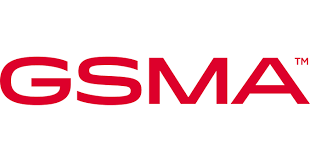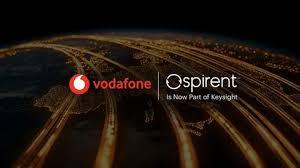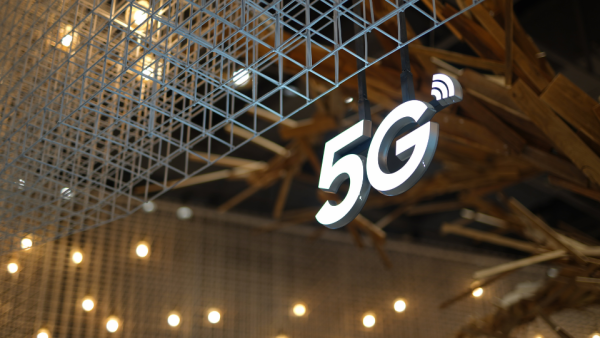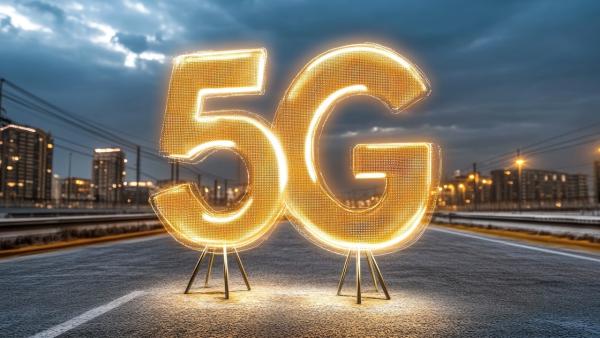Written by Mike Dano for LightReading.com
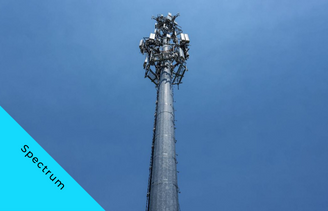
Gigi Sohn could join the FCC as early as next month, according to the financial analysts at New Street Research. And that, they wrote in a new note to investors, could finally pave the way for the agency to move forward on the 12GHz debate.
However, the analysts cautioned that it's still not clear how a Democrat-controlled FCC might ultimately vote on the 12GHz issue – including whether to allow 5G operations in the band.
Broadly, the issue is important to all of the nation's big 5G players, including T-Mobile and AT&T. After all, they're always on the lookout for more spectrum they can add to their networks. Doing so would undoubtedly give them additional network capacity to expand services like fixed wireless access (FWA).
However, Dish Network is the company that is the most directly invested in the 12GHz issue. That's because Dish already holds the rights to vast sections of the 12GHz band. And if the FCC ultimately votes the way Dish wants it to, it could gain significant leverage in 5G as well as the nascent 6G market.
A full power FCC
President Biden recently renominated Gigi Sohn to the fifth seat at the FCC. And thanks to Democrats' Senate victories during the November midterm elections, it appears Sohn might actually receive Congressional approval to join the commission after years of waiting in nomination limbo.
"FCC nominee Gigi Sohn is likely to have a committee hearing in January, but no later than February, with a Senate vote shortly thereafter," wrote the New Street analysts in a Monday report. "It will be close, but we think the odds today favor confirmation."
If Sohn joins the FCC, the move would give Democrats a 3-2 majority at the agency.
Separately, according to the New Street analysts, the FCC's Office of Engineering and Technology (OET) is currently evaluating various studies on the 12GHz band, and is expected to issue a report on its findings shortly. "It is both a non-partisan group and sophisticated about politics, so it would not surprise us if it is waiting for a third Democrat to arrive to issue its report," according to the analysts. "The OET report will significantly affect how the FCC proceeds."
Taking sides
On one side of the 12GHz debate sit satellite companies, including SpaceX's Starlink, fronted by billionaire Elon Musk. Those companies are currently using the 12GHz band in part for their burgeoning low-Earth orbit (LEO) satellite operations.
On the other side of the 12GHz debate sit Dish Network, RS Access and others, backed in part by billionaires like Charlie Ergen and Michael Dell. Some of those companies also use the 12GHz band for satellite-based services, but they're urging the FCC to also allow terrestrial 5G signals in at least a part of the band, potentially under some kind of spectrum-sharing setup. Starlink and others oppose the inclusion of 5G in the band.
In the middle sit companies such as AT&T and T-Mobile. They agree that the 12GHz band should be opened for terrestrial 5G, but they have also hinted that the FCC ought to auction the 12GHz band instead of handing it off to companies like Dish and RS Access that currently hold some rights to it.
The FCC's OET is expected to determine whether terrestrial 5G can sit alongside satellite operations in the 12GHz band without causing interference. Then the FCC's five commissioners will decide what to do next, including whether to hold an auction.
Spectrum for the future
The 12GHz debate isn't the only spectrum topic in front of the FCC. For example, the FCC's chairwoman said she's eying the 12.7GHz-13.25GHz spectrum band as a possible location for the agency's next big spectrum push. That spectrum sits just above the band Dish and SpaceX are bickering over.
Separately, a number of top officials in the Biden administration are working to develop a unified and cohesive national spectrum strategy, which could be released within the next few months.
Broadly, the political machinations are critical to 5G providers like T-Mobile and Verizon. After all, they have invested billions of dollars into the purchase of 5G spectrum in recent years. And the network capacity created by that spectrum has proven critical to the development of new services like FWA.
But the 12GHz issue is somewhat complex for a number of companies, including
AT&T and Dish. For AT&T, the company has indicated some support for an auction of 12GHz spectrum, but it also has a spectrum agreement with Dish. And Dish does not support an auction of the 12GHz band. AT&T also owns 70% of DirecTV, which might merge with Dish at some point in the future.
For Dish, the 12GHz issue is important because it could give the company significantly more spectrum for its budding 5G efforts. Indeed, company officials have suggested that the 12GHz band would be ideal for FWA services in rural areas – a stance potentially geared to curry favor among regulators keen to cross the digital divide.
But the 12GHz band is also noteworthy considering it would appear to sit in the sweet spot for 6G spectrum. After all, companies like Nokia and Ericsson have already suggested that the so-called "centimetric" spectrum bands – those between 7GHz and 20GHz – are potentially ideal for future 6G networks.
(Source: Phil Harvey/Alamy Stock Photo)
Click here to read the original article.




